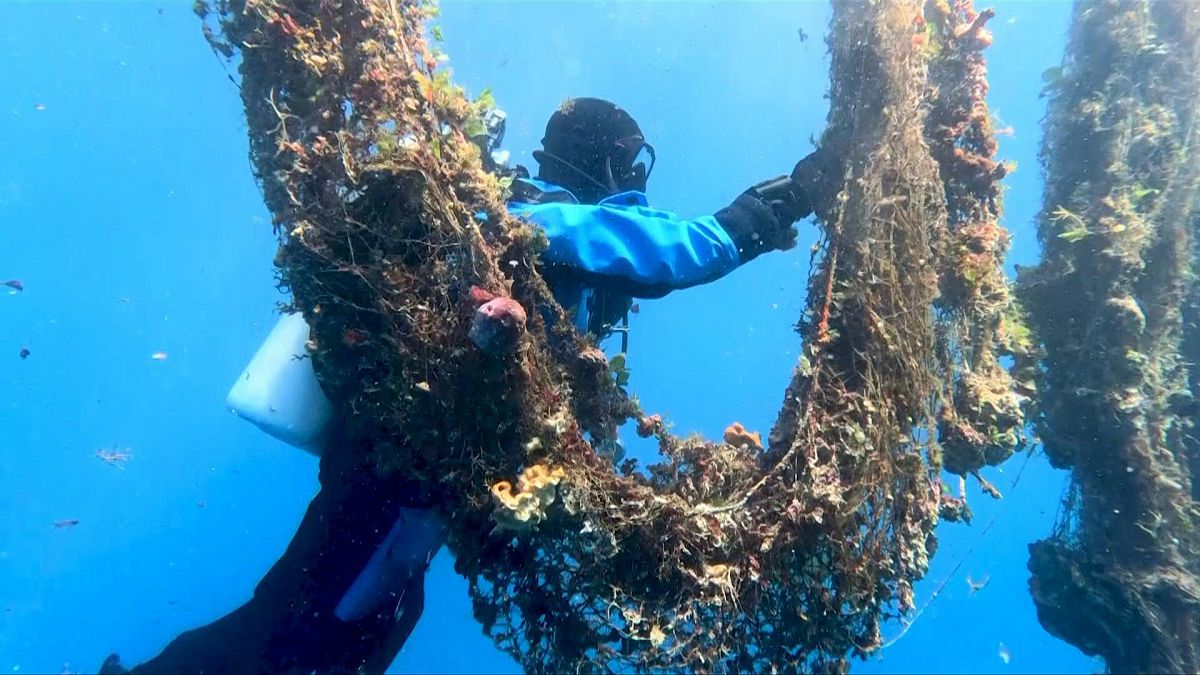Dumped fishing nets account for 10% of marine litter found on the sea floor.
Off the spectacular Greek island of Santorini, divers drag deadly ‘ghost nets’ from the depths of the Aegean Sea. They have claimed the lives of thousands of fish.
George Sarelakos, head of the NGO Aegean Rebreath, says that the nets are "a huge problem around the globe”.
“They represent about 10 per cent of marine litter found on the sea bottom."
Over the last five years, Aegean Rebreath's 300 volunteer divers have removed more than 28 tonnes of nets and hundreds of thousands of plastic bags from Greek waters.
But why are ghost nets such a problem in Greece?
What are ghost nets?
Ghost nets are old fishing equipment that has been dumped in the sea. Though no longer intending to catch fish, ghost nets haunt our waters, entangling and killing sea creatures.
"Bad amateur fishermen are responsible for a large part of the damage caused by fishing nets on the seabed,” says local fisherman, Kyriakos Prekas.
In Greece, only professional licensed fishermen are allowed to use nets. According to Kyriakos, amateur unlicensed fisherman cut their nets loose and leave them for a few days before returning to collect their catch.
“They cut the nets loose again as they can’t bring them back to port as it is illegal. That is where the biggest damage comes from.”
But, it’s not just the amateur fisherman who are to blame for the ghost nets.
Antonis Sigalas, the Mayor of Santorini, suggests the bad weather of the Aegean Sea also plays a part in the plague of abandoned fishing gear. Strong winds in the region mean many nets are blown off course and lost.
“An intense effort has been made over the past five years to recover all these lost nets that may have only fished for one day, but continued for years to trap fish and the other valuable flora and fauna that exists in our seas," he adds.
Kyriakos thinks the problem is only going to get worse as overfishing reduces sea life populations.
"The use of fishing nets will increase more and more because the stocks of fish in the sea are depleted. A fisherman can’t survive and in order to survive and maintain his boat they must use more fishing nets. More nets means more damage."
Watch the video above for incredible underwater footage.



